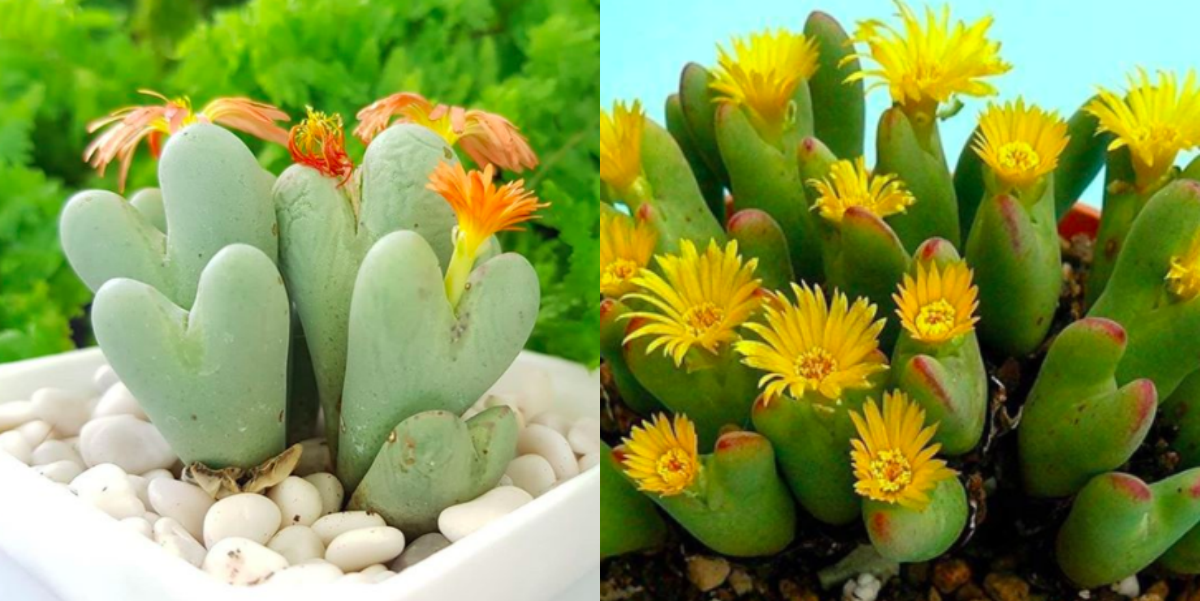These Rare Heart-Shaped Succulents Grow Flowers From Their Center

We’ve said it once and we’ll say it again: Nature is truly amazing. From these gorgeous evergreen trees that grow rainbow bark to these magical mermaid tail succulents, we are constantly impressed by the flora and fauna around us. Speaking of succulents, we’ve discovered a new kind native to South America that has got us seeing hearts—literally. Conophytum bilobum is a type of succulent known for its unique two-lobed body, which most closely resembles a heart. It’s safe to say we’re in love with these little guys.
A post shared by World of Succulents (@worldofsucculents) on Apr 21, 2020 at 11:19am PDT
Conophytum bilobum,also known as “living pebble,” is a small, stemless plant that grows lobes up to three inches in height, which often produce flowers from their center during the fall, according to World of Succulents. These plump, heart-shaped lobes are typically green and may contain a reddish or purple line at the top. As if this plant couldn’t get any more charming, the accompanying flowers, which blossom in the autumn, are usually a bright yellow or reddish-orange color. Conophytum bilobum plants fare well in dish gardens and can be grown at home.
A post shared by World of Succulents (@worldofsucculents) on Apr 23, 2018 at 3:48pm PDT
What’s neat about the living pebble is its regenerative life cycle. According to Cactus Art Nursery, the plant enters a dormant period in the summer. During this time, a new body forms inside the old lobes, claiming all the substances inside and leaving nothing behind but the shellings of the old lobes. Then, the plant will enter its growth period of the year, which typically lasts from August to March. Overall, these green-hearted succulents require minimal water, as too much, will cause them burst. Also, no don’t worry about re-potting a living pebble plant—it can stay in the same pot for years.
While the living pebble is not native to the United States, there are a few sellers that will either ship the plant as a whole or seedlings to your house so you can grow it on your own. You can check out Bonanza.com, RarePlant.com, as well as Amazon to get your seeds. You can also check out another personal favorite plant of ours: hoya hearts, which also take on a heart-shaped profile.
A post shared by c3lïn3lsm (@celine0809succie) on Nov 11, 2018 at 8:59am PST
You Might Also Like
